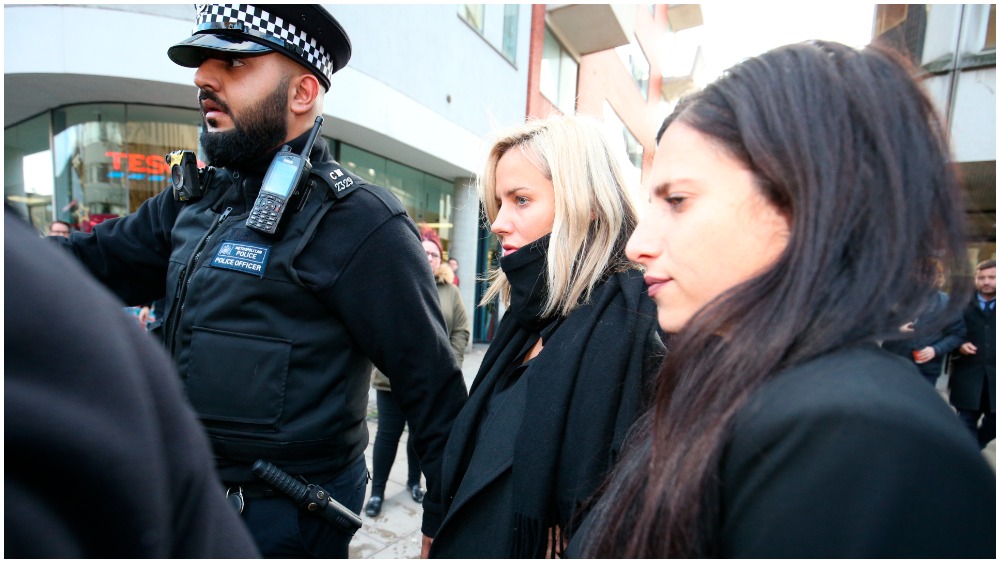In December 2019, one of Britain’s most successful TV presenters, Caroline Flack, became the subject of an intense media investigation after she allegedly assaulted her boyfriend, tennis player Lewis Burton, with a ramp. Two months later, the once vibrant television personality died by suicide.
In Hulu’s two-part docuseries “Caroline Flack: The Search for Truth”, director Christian Collerton chronicles Flack’s rise from popular host of popular competition shows such as “The X Factor” and “Love Island UK” to a social pariah after she was arrested in connection with an assault and pleaded not guilty.
The series is told through the eyes of Flack’s mother, Christine, as she celebrates her daughter’s life and career while trying to understand and find answers to the events that led to Caroline’s suicide in February 2020. Christine attempts to determine whether her daughter was treated fairly by the media and the legal system, or whether she was put on trial and unfairly targeted due to the media’s desire to create clickbait stories about her fall from fame and star.
“Caroline’s legacy in the eyes of the British public has been severely tarnished by the events of the two months leading up to her arrest and death,” Collerton said. “But as we look at the details of what really happened in this series, it becomes clear that much of what was reported in the newspapers is not what actually happened. Christine wanted to at least reconstruct and reclaim her daughter’s story.”
First-hand testimony from Flack’s family, friends, former publicists and lawyers, as well as a former chief prosecutor at the Crown Prosecution Service (CPS) and some members of the media who appeared to be on a mission to destroy the 40-year-old, revealed some of the inconsistencies in the case against Flack. According to the series, Flack caused minimal bodily harm to Burton, but Burton did not believe his girlfriend should be brought to justice. It was also revealed that Flack had hit Burton in the head with a cell phone rather than a lamp. Images of a bloody bedroom taken shortly after the alleged assault that were widely published in British newspapers and tabloids were also misleading. The media reported that the blood was Burton’s, but it was not. Blood from Caroline’s self-inflicted wound covered the bed sheets. Flack spent 12 hours in hospital after the incident. Mr. Barton did not receive any medical treatment.
“If you ask most people on the show about Caroline Flack before the series airs, they’ll say, ‘She’s that presenter who assaulted her boyfriend with a lamp and killed herself. There was blood all over the place, and then she killed herself,'” Collerton says. “Basically, it was a story that was reported by the CPS and then published in the newspapers. But when you look at the evidence that Christine has collected over four years, it becomes a completely different story.”
Flack and Burton were not allowed to communicate during the trial, including body camera footage of Flack, who is said to have become mentally unstable shortly after the assault. The TV presenter was embarrassed by the footage and categorically did not want it to be made public. Flack was advised not to speak publicly. Before her death, she sold her flat in London and moved into one where she rarely left the house. The documentary series chronicles Flack’s struggle in the last two months of his life to reconcile the person he believed he was with the person the tabloids portrayed him to be, using text messages he sent friends and family.
“One of the basic points of this film is what happens when your truth is taken out of your hands and manipulated,” Collerton says. “Caroline didn’t have a voice for the last two months of her life, and this film series is focused on giving her that voice back and letting her speak her truth.
“Caroline Flack: In Search of the Truth” is now available on Hulu and Disney+. The series is produced by Curious Films, the same company behind the 2021 documentary “Caroline Flack: Her Life and Death.”
If you or someone you know is considering suicide, call the National Suicide Prevention Lifeline at 988 or visit SpeakingOfSuicide.com/resources.

